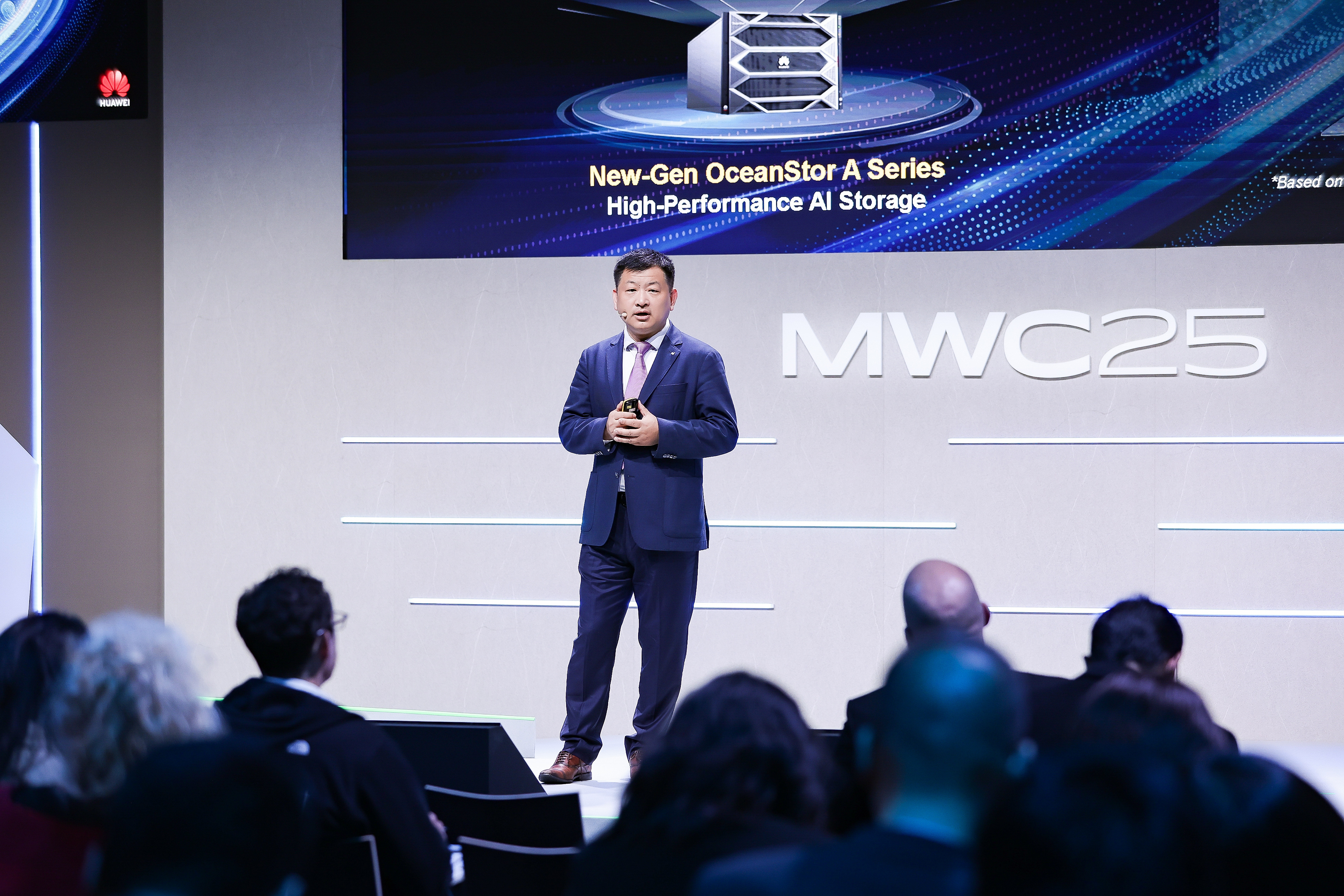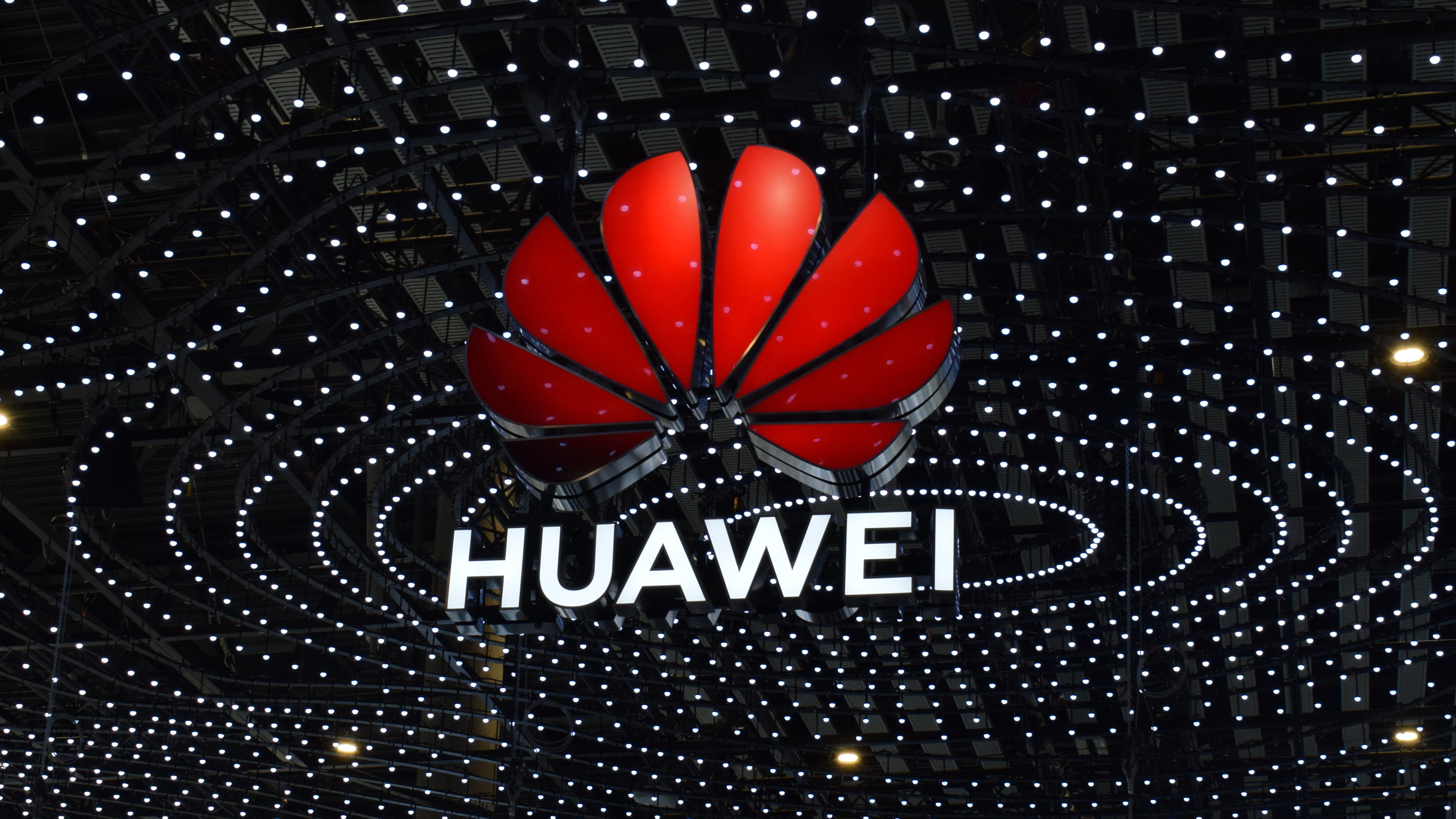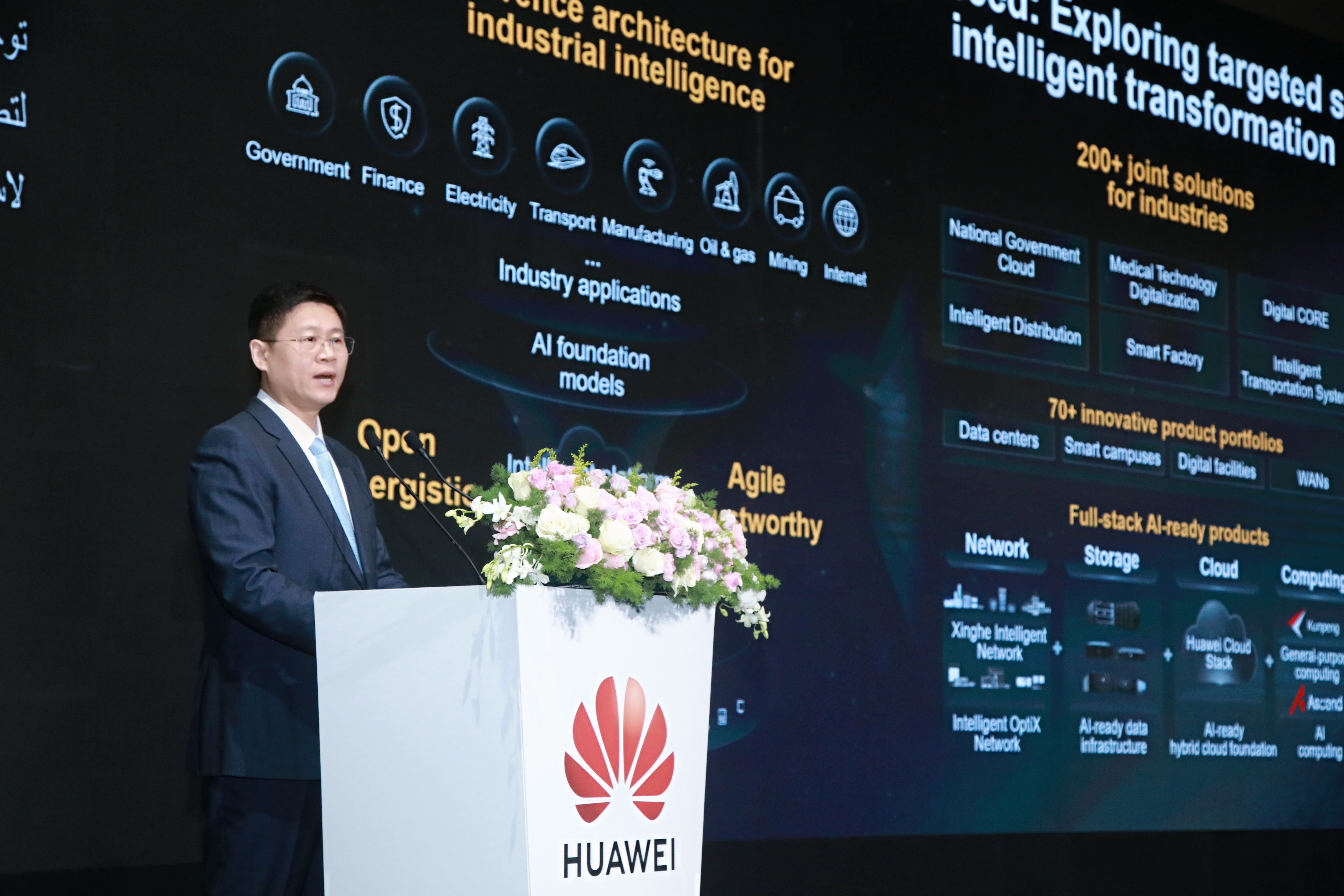Reshaping traditional industries with technology
Industries worldwide are on the brink of a new era as technologies like AI, 5G-A, and cloud computing reshape the landscape

At the Industrial Digital and Intelligent Transformation Summit at Gitex Global 2024, Leo Chen, corporate senior vice president and president of enterprise sales at Huawei, emphasized the urgent need for industries to embrace digital transformation.
In his keynote address, Chen outlined Huawei's vision of accelerating transformation across traditional industries, building powerful infrastructure, driving innovation, and fostering global collaboration to create a more connected and intelligent future.
The world is witnessing the Fourth Industrial Revolution, where technologies like AI, 5G-A, cloud, and IoT merge the physical and digital realms. These advancements are not only boosting productivity but also enabling entirely new business models and innovations. The integration of these technologies is transforming industries by automating processes, enhancing decision-making with real-time data insights, and enabling more personalized products and services.
As Chen highlighted, we are at the cusp of a productivity revolution that has the potential to redefine industries by improving efficiency, reducing costs, and driving sustainable growth across the board. The Fourth Industrial Revolution is also leveling the playing field, allowing smaller businesses to compete globally by leveraging digital tools and intelligent systems.
Overcoming challenges to digital transformation
Despite the opportunities presented by digitalization, industries face several challenges that must be overcome to fully realize the benefits of the Fourth Industrial Revolution.
Less than 50% of devices are currently connected, which limits the potential of IoT and data-driven decision-making, according to Chen. Computing power, a critical component of digital transformation, remains unaffordable, energy-intensive, and in short supply for many businesses, particularly in developing regions.
Additionally, AI penetration in industries is still below 12%, due to issues such as ecosystem fragmentation, talent shortages, and insufficient policy frameworks to support digital growth.
These challenges are compounded by a lack of interoperability between systems, data privacy concerns, and the high costs of integrating new technologies into legacy infrastructure. However, Huawei is committed to addressing these issues through strategic initiatives that focus on building robust digital infrastructure, fostering partnerships, and developing talent to bridge the gaps in digital readiness. By working collaboratively with governments, industry leaders, and educational institutions, Huawei aims to create an environment where digital and intelligent technologies can thrive.
Huawei's key solutions for industry transformation
To overcome these challenges, Huawei is focusing on three essential directions: building powerful infrastructure, applying the latest technologies to industry scenarios, and fostering an innovation ecosystem. Huawei's AI-ready infrastructure is designed to effectively collect, transmit, process, and compute data in real time, transforming data into productivity. With solutions like Huawei Cloud Stack, high-performance Wi-Fi 7, and AI-ready all-flash storage, Huawei is equipping industries with the tools they need to successfully navigate digital transformation.
Huawei's commitment to building powerful infrastructure ensures that industries at various stages of their digital journey can leverage AI and cloud technology. Huawei Cloud Stack, for instance, allows enterprises to benefit from cloud computing while maintaining control over sensitive data. High-performance Wi-Fi 7 and AI-Ready all-flash storage further support industries by providing reliable, high-speed connectivity and efficient data management.
In addition to infrastructure, Huawei is actively applying its latest technologies to solve industry-specific challenges. By collaborating with partners across different sectors, Huawei helps businesses adopt intelligent technologies effectively. For example, Huawei worked with UnionBank to launch a digital loan system in just 35 days, showcasing the speed and efficiency of its cloud platform enablement.
Fostering an innovation ecosystem is also a key pillar of Huawei's approach. Huawei also works with governments, industry leaders, and educational institutions to foster an environment conducive to digital growth. Through initiatives like joint innovation labs, Huawei promotes continuous learning, innovation, and collaboration, ensuring industries have access to cutting-edge technologies and best practices.
Integrated teams and tailored solutions for industry needs
Huawei's approach to transforming traditional industries is characterized by its Integrated Teams, which bring together experts from R&D, product development, sales, and marketing to create tailored solutions for each client. As described in "The Case for Reshaping Traditional Industries with Tech," these teams leverage their deep industry knowledge to develop solutions that meet the specific needs of their customers.
One notable example is State Grid Shaanxi, which partnered with Huawei to build intelligent power distribution networks. By working with 28 other partners and leveraging Huawei's expertise in IoT management and edge computing, the project was able to strengthen the last mile of power supply, improve power assurance, and promote a clean, low-carbon energy system.
Successful digital transformation requires not only cutting-edge technology but also strong collaboration and an ecosystem that fosters innovation. Huawei has introduced the SHAPE framework to build a win-win cooperation system with its partners, focusing on product leadership, joint innovation, capability development, cooperation experience, and growth opportunities.
Talent development is also a critical component of Huawei's strategy. To address the growing talent gap in digital and intelligent technologies, Huawei has been providing tech-based, practice-oriented enablement training through its programs at the enterprise, university, and individual levels. The company has already nurtured over eight million ICT professionals and aims to cultivate 10 million more by 2030.
Real-world use cases: demonstrating the impact of digital solutions
Huawei's digital solutions have been instrumental in transforming industries and improving citizen services worldwide. For example, the government of Sarawak, Malaysia, partnered with Huawei to provide digital connectivity across the state, to double its GDP by 2030.
In Shenzhen's Futian District, Huawei's Smart City Governance platform has helped improve incident response times from four minutes to just 50 seconds, demonstrating the real-world impact of intelligent urban governance.
Similarly, in Hebi, China, Huawei implemented its "Intelligent Road" solution to optimize traffic flow and reduce congestion. By using high-frequency radar and intelligent devices, the solution provides real-time traffic analysis, enabling energy-efficient improvements to overall traffic conditions.
To help countries understand their progress in digital transformation, Huawei and IDC jointly developed the Global Digitalization Index (GDI). The GDI measures the maturity of a country's ICT industry by considering multiple indicators, including computing, storage, cloud, and green energy. As Chen stated: "Our hope is that the GDI will give every country a clearer vision of and plan for its digital and intelligent transformation." Research shows that a one-dollar investment in digital transformation results in an 8.3-dollar return in a country's digital economy, underscoring the importance of investing in technology.
Chen closed his keynote at Gitex Global 2024 by emphasizing the importance of boldness and innovation in the digital age. "Boldness has genius, power, and magic in it," he said, encouraging industries to embrace new technologies and innovate fearlessly.
Huawei is committed to supporting industries on their digital transformation journey, providing the tools, partnerships, and vision needed to succeed in this new era of connectivity and intelligence.
Get the ITPro daily newsletter
Sign up today and you will receive a free copy of our Future Focus 2025 report - the leading guidance on AI, cybersecurity and other IT challenges as per 700+ senior executives
ITPro is a global business technology website providing the latest news, analysis, and business insight for IT decision-makers. Whether it's cyber security, cloud computing, IT infrastructure, or business strategy, we aim to equip leaders with the data they need to make informed IT investments.
For regular updates delivered to your inbox and social feeds, be sure to sign up to our daily newsletter and follow on us LinkedIn and Twitter.
-
 Bigger salaries, more burnout: Is the CISO role in crisis?
Bigger salaries, more burnout: Is the CISO role in crisis?In-depth CISOs are more stressed than ever before – but why is this and what can be done?
By Kate O'Flaherty Published
-
 Cheap cyber crime kits can be bought on the dark web for less than $25
Cheap cyber crime kits can be bought on the dark web for less than $25News Research from NordVPN shows phishing kits are now widely available on the dark web and via messaging apps like Telegram, and are often selling for less than $25.
By Emma Woollacott Published
-
 Huawei’s Peter Zhou on the future of data storage to accelerate business digital transformation
Huawei’s Peter Zhou on the future of data storage to accelerate business digital transformationSponsored Content Storage in the era of AI will create new challenges for cold and warm data
By ITPro Published
-
 Doing business under US sanctions: a Huawei success story
Doing business under US sanctions: a Huawei success storyAnalysis Doubling down on R&D, diversifying its business, and seeking out ripe new markets – the resurgence of Huawei carries lessons for all businesses
By Bobby Hellard Published
-
 Do we really need smart buildings anymore in a hybrid world of work?
Do we really need smart buildings anymore in a hybrid world of work?Supported Content Most workers prefer a hybrid work arrangement, with offices feeling emptier than ever – but that doesn't mean you should give up on modernizing the workspace
By Keumars Afifi-Sabet Published
-
 Huawei empowers SMEs through digital and intelligent transformation
Huawei empowers SMEs through digital and intelligent transformationSponsored Content Huawei launches new solutions and strengthens partnerships to drive digital transformation for SMEs, aiming to empower small businesses in the intelligent era
By ITPro Published
-
 Driving intelligent transformation: Huawei's vision for the future at Gitex Global 2024
Driving intelligent transformation: Huawei's vision for the future at Gitex Global 2024Sponsored Content Li Peng, corporate senior vice president and president of ICT sales and service at Huawei, outlines how the company is leading the way in intelligent transformation, building partnerships, and developing talent to drive global growth in the intelligent era
By ITPro Published
-
 Global digitalization index (GDI) in-depth analysis
Global digitalization index (GDI) in-depth analysisSponsored Content As digital technologies reshape industries and redefine global economies, Huawei’s Global Digitalization Index (GDI) 2024 offers a detailed analysis of how nations can leverage ICT to accelerate growth
By ITPro Published
-
 Striding towards the intelligent world
Striding towards the intelligent worldSponsored Content As global industries rapidly shift gears from digitalization to digital-intelligent transformation, data storage emerges as the critical driver of this evolution
By ITPro Published
-
 BT says it needs more time to remove Huawei equipment from UK networks
BT says it needs more time to remove Huawei equipment from UK networksNews The company has until January 2023 to remove the Chinese operator’s equipment in its core network, but has now asked the government for an extension
By Zach Marzouk Published
